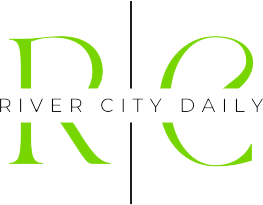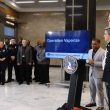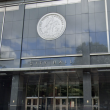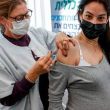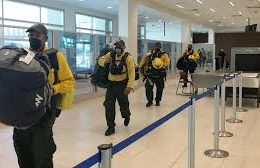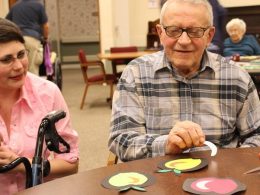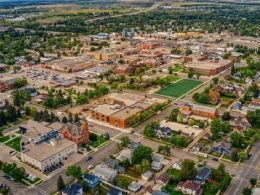After several weeks of deliberation, the North Dakota Department of Health on Thursday, Dec. 31, announced priority groups for the next phases of COVID-19 vaccine distribution.
The finalized priority list, which was approved by Gov. Doug Burgum Wednesday evening, put older North Dakotans at the top of the hierarchy for immunization after completion of the initial phase, which is estimated for mid-January.
At the top of this priority list are all residents over the age of 75, followed by those between 65 and 75 with multiple “high-risk” medical conditions.
The state distinguishes “high-risk” issues from general underlying conditions, citing health factors outlined specifically by the U.S. Centers for Disease Control and Prevention. Staff in congregate communities like prisons and homeless shelters are also among the target groups in the next stage, called Phase 1B, along with school employees and the remainder of residents age 65 and older.
Phase 1C primarily targets essential workers not yet covered in previous vaccination stages.
The first phase of vaccinations, known as Phase 1A, began earlier this month and targets health care workers and nursing home residents.
State Immunization Director Molly Howell marked mid-January as a target date for the end of Phase 1A, after which North Dakota will move on to what promises to be the more logistically challenging stages of the immunization process. The state will have to significantly scale up its vaccination program while reaching a wide swath of people that are less easily grouped within hospitals and nursing homes.
“Vaccine distribution in North Dakota has gone well the first three weeks,” Howell wrote in a press release. “Although vaccine supply continues to be very limited, North Dakotans should monitor messaging from their local health departments and health care providers for more information on when they are able to be vaccinated.”
The Department of Health published its newly approved vaccination hierarchy as follows, in order of priority:
Phase 1B:
- Persons age 75 and older.
- Persons age 65 – 74 with two or more high-risk medical conditions.
- Staff and persons living in other congregate settings (i.e., corrections, group homes, treatment centers, homeless shelters, etc.).
- Persons age 65 and older with one or more high-risk medical conditions.
- Persons age 65 and older with or without high-risk medical conditions.
- Persons with two or more high-risk medical conditions regardless of age.
- Child care workers.
- Workers employed by preschools or Kindergarten through 12th grade.
Phase 1C:
- North Dakota National Guard, not previously covered.
- Grocery workers.
- Public safety answering points (911).
- Manufacturing related to the development or supply of COVID-19 vaccine.
- Other health care/public health workers not included in phase 1A.
- Free-standing clinical laundries.
- Public transit, including bus, taxi and ride-share drivers.
- Persons age 16 – 64 with one or more high-risk medical conditions.
- Blood bank workers not previously vaccinated.
- Information technology.
- All other essential workers per Cybersecurity and Infrastructure Security Agency (CISA).
After North Dakota completes Phase 1C, it will move on to vaccinating the general public.
Howell has stressed that different facilities and different areas of the state may progress to new phases of vaccination at different times depending on local acceptance and supply of the vaccines.
North Dakota has administered more than 19,000 doses of the Pfizer and Moderna vaccines to health care workers and nursing home residents, out of a total of about 35,200 allotted to the state so far.
